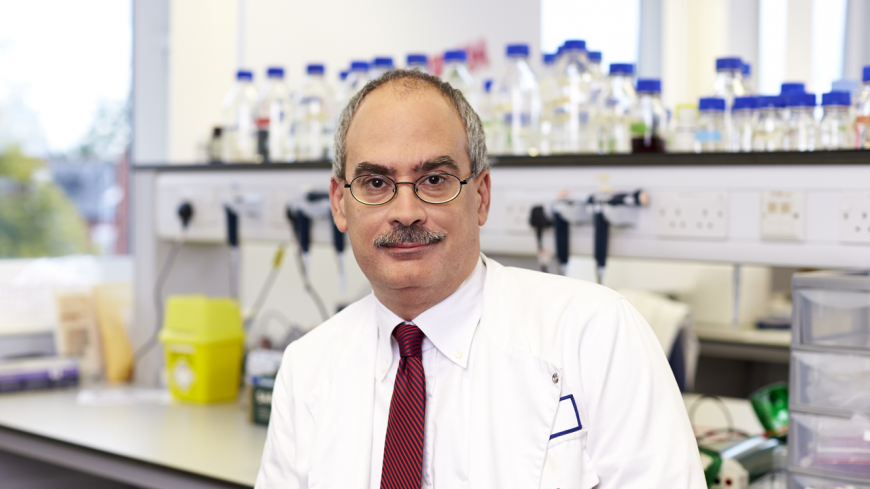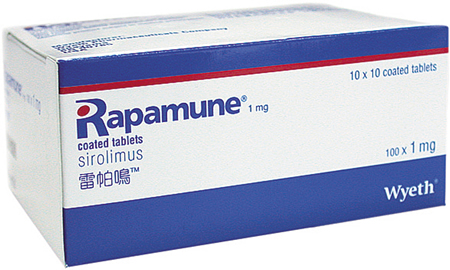by Daniel Kelly
Intro
Today we have access to more knowledge and information than ever before. Yet we’re witnessing global epidemics of conditions such as type 2 diabetes, heart disease, obesity and multiple strains of cancer.
This is one of the great paradoxes of modern life.
How is it possible to have all this information available, yet have so much disease? The subject warrants an entire thesis of itself. However, we can draw a few conclusions from it.
First off, human beings are inherently lazy and slothful by nature. Our default state is the path of least resistance. It requires a great deal of willpower and discipline to overcome this instinct.
This means that access to more information doesn’t necessarily increase your chances of using it. This is why people continue to eat junk-food by the boatload, despite knowing it does them no good.
Fast and convenient trumps everything else.
Second, the environment we live in is highly toxic to biological organisms. Not least of all human beings.
We are exposed to harmful, endocrine-disrupting chemicals (EDCs) every day. These toxins are all around us and wreak havoc with our bodies. From the water supply, to car exhaust fumes, to alcohol. They are inescapable in modern life.
Arguably, the biggest endocrine disruptor of all is processed food. Indeed, candy bars, cereals and microwavable meals are staples in most people’s diets.
These endocrine disruptors in addition to the chronic sleep deprivation and stress that characterizes modern life has created the perfect storm for disease:
Poor blood glucose management, insulin resistance, estrogen dominance and low testosterone among other things.
What this amounts to is high levels of oxidative stress and inflammation. This leads to an accelerated aging process. As a result, we see disease epidemics among young people usually reserved for the elderly population.
Chief among these epidemics, albeit not widely recognized by the mainstream, is low testosterone.
In this article we’ll explore why an anti-aging strategy is crucial if you want to avoid one of the many disease states of modern life. We’ll also see why optimal testosterone levels are pivotal to this process.
Anti-Aging: Start Now
Anti-aging is a subjective and widely misunderstood term. For many, the concept of anti-aging involves visiting expensive boutique clinics for things like growth hormone and botox injections.
However, the way I see it, anti-aging means anything you can do to slow down the aging process. And this doesn’t have to be expensive. If you want to live a high-quality life, doing your slowing down the aging process is vital.
As we’ve seen, modern life is speeding up the whole aging process, resulting in a slew of nasty diseases and debilitating conditions. In his excellent course, The Anti-Aging Blueprint, PD Mangan refers to this as the “Garbage Catastrophe of Aging” (I wrote a review of the course here).
And to avoid the Garbage Catastrophe of Aging, you need to adopt an anti-aging strategy today.
Allow me to make it crystal clear for you:
Anti-aging does not begin when you start to feel a “bit old” or when you notice wrinkles. It starts right here and now.
Adopting an anti-aging mindset means that you pre-empt ill health, preventing disease states before they take hold. Sadly, the vast majority of people only take action when something is wrong.
The medical system won’t save you. In fact, our medical system takes an entirely reactive approach to health.
Preventative healthcare is not the order of the day. Subsequently, you must take matters into your own hands. That means arming and educating yourself with knowledge.
Now, you may think –
“OK, I understand about anti-aging, but where does testosterone fit into all of this?”
The answer is simple:
Testosterone is unparalleled in its ability to affect positive change in multiple areas of human health. These areas include the cardiovascular, reproductive, immune, and endocrine systems. It also has positive effects on blood sugar regulation and cognition.
In short, optimizing your testosterone levels can only be good for you.
Nevertheless, in spite of the weight of scientific evidence to support the benefits of testosterone, it still receives widespread demonization.
Many people believe that testosterone (whether exogenous or endogenous) is detrimental to your health. However, nothing could be further from the truth. In the rest of this article, we’ll look examine some of the scientific data on testosterone and its impact on human health.
Testosterone improves cardiovascular function
There’s a widespread belief that testosterone has a negative impact on cardiovascular health.
The idea is that testosterone increases cardiovascular risk and can lead to heart attack or stroke. Indeed, in recent years we’ve seen multiple lawsuits against pharmaceutical companies citing testosterone as the cause of heart attack.
While I won’t shed any tears for Big Pharma; testosterone is not the culprit here.
According to research, testosterone levels decrease in men after 40 years old. Low testosterone is linked to to multiple medical conditions, including type 2 diabetes, metabolic syndrome, kidney and cardiovascular disease.
Your heart is the most important aspect of your health. It is responsible pumping blood all around your body. As such, a healthy heart must be an integral part of your anti-aging strategy. And research shows that testosterone is key to heart health.
Studies show decreased cardiovascular risk in in men with higher endogenous (i.e. natural) testosterone levels. This also applies to testosterone-deficient men who underwent testosterone replacement therapy (TRT) versus untreated men [1].
This is further illustrated in a seven-year control study on 2,314 men, aged 40–79 years. After adjusting for parameters such as smoking and obesity, researchers found that every 173 ng/dL (6 nmol/L) increase in total testosterone was associated with a 21% lower risk of all-cause mortality [2].
One large meta-analysis carefully reviewed studies from prescription databases, including one of over 200,000 men. The researchers concluded, in contrast to mainstream consensus, that TRT is not associated with increased mortality, stroke or cardiovascular risk [3].
It appears that there is an “inverse relationship” between the level of testosterone deficiency (i.e. how low your testosterone is) and severity of coronary artery disease. Four independent studies have demonstrated that lower levels of endogenous testosterone are linked with increased severity of coronary artery disease in men with the condition [4,5,6,7,8].
Testosterone improves cognition
According to the Oxford Dictionary, cognition is “the mental action or process of acquiring knowledge and understanding through thought, experience, and the senses.” Cognition includes knowledge, memory, judgement, problem-solving, evaluation and decision-making.
One of the hallmarks of aging is the decline in cognition. Cognitive decline means you are no longer independent and you rely on others to care for you.
Therefore, one of the best things you can do in your fight against aging is to preserve your cognition. And once again, testosterone is central to this process.
Numerous studies demonstrate that men with low endogenous testosterone perform below normal on tests for verbal fluency, spatial awareness, memory, executive function and attention[9, 10, 11, 12, 13, 14].
Research also suggests that low serum testosterone is associated with increased risk of dementia and Alzheimer’s [15, 16].
One placebo-controlled study looked at the effect of testosterone replacement therapy on cognitive performance and depression in men with low testosterone. The study involved 106 participants with total testosterone below 330 ng/dL. The participants were divided into two groups: 54 received 1000mg of testosterone undecanoate (TRT), while 52 received a placebo. Those in the TRT group received injections upon enrollment, at 8 weeks, then every 3 months.
After 8 months, subjects in the TRT group saw increases in serum testosterone levels and significant improvement in cognitive abilities (shown in the graph below as the Korean Mini-Mental State Examination / K-MMSE . The researchers also noted significant decreases in depression and aging symptoms in the TRT group (shown in the graph below with the Aging Male Symptoms scale / AMS and Beck Depression Inventory / BDI) [17].
Testosterone improves insulin sensitivity
Impaired insulin sensitivity or insulin resistance is arguably one of the most important topics of our time, but also one of the least understood.
Eating a meal containing carbohydrates causes blood glucose levels to rise. In response to this, your pancreases secretes insulin, causing cells to absorb blood glucose, thereby lowering its levels in the blood.
Insulin resistance means that your body has built up a tolerance to insulin. As a result, more insulin is required to reach your body’s cells (predominantly in muscle and fat tissue) to absorb the excess glucose from your bloodstream.
Over time, the pancreas secretes more and more insulin to keep blood glucose levels under control. Eventually, the pancreas stops producing sufficient insulin. This leads to conditions such as type 2 diabetes.
Apart from type 2 diabetes, insulin resistance is also associated with metabolic syndrome, obesity, heart disease, low testosterone and impaired mitochondrial function [18].
Research suggests that testosterone can increase insulin sensitivity in a number of ways. It is involved in promoting glucose utilization by stimulating glucose uptake and glycolysis. Insulin resistance is characterized by dyslipidemia, i.e. the buildup of triglycerides and low levels of high-density lipoprotein cholesterol or HDL (also known as “good cholesterol”). Testosterone can improve lipid metabolism, particularly in insulin-responsive tissues such as the liver, adipose tissue and skeletal muscle [19].
One single-blind placebo controlled study looked at the effect of testosterone administration on 13 men with chronic heart failure. Subjects were randomized and received either testosterone or a placebo for a month. Those receiving testosterone were given two intramuscular injections of Sustanon 250mg. The placebo consisted of 0.9% normal saline solution.
To measure the effects of testosterone therapy on glucose tolerance, subjects performed a simple oral glucose tolerance test. They were required to drink a 75 g glucose solution after a 10–12 h fast. Blood glucose and insulin levels were taken 30, and 15 minutes before, and 0, 30, 60, 90, 120 minutes after ingestion of the solution [20].
The graphs below show fasting blood glucose and insulin levels before and after testosterone treatment. This demonstrates the overall positive effect of testosterone on insulin sensitivity.
Testosterone also indirectly improves insulin sensitivity in a number of ways. Testosterone increases lean muscle mass, and muscle mass is inversely associated with insulin resistance [21, 22]. In other words, the more muscle mass you have, the better your insulin sensitivity.
Furthermore, multiple studies show that testosterone reduces fat mass. Excess adipose tissue is pro-inflammatory, and low testosterone itself is associated with obesity. It’s thought that excess fat tissue can flood the liver with fatty acids, which leads to insulin resistance [23].
One research paper analyzed multiple studies to determine the relationship between testosterone and weight loss. The authors concluded that testosterone therapy in obese men produces sustained weight loss without the yo-yo effect seen in other methods. This is in comparison to pharmaco-therapeutic agents, such as incretin and glucagon-like peptide-1 (GLP-1), enzyme-inhibitors and bariatric surgery [24].
Final thoughts
In this article we’ve only scratched the surface of the incredible anti-aging power of testosterone. There are no two ways about it. Testosterone is not the big bad wolf. In fact, it’s vital for optimal health.
Nevertheless, this is not a call for everyone to jump on testosterone replacement therapy. All too often, people look at TRT as some kind of panacea that can fix all of their problems.
However, prior to undergoing a lifelong medication, you should do everything in your power to raise your testosterone levels naturally.
That means proper nutrition, adequate sleep and regular exercise.
Mastering the basics isn’t sexy. But if you get them right, you will be in better health than 99% of the population.
If you want to learn more about optimizing your natural testosterone levels, as well as my own personal journey undergoing TRT, check out my new book Optimized Under 35.
About the author
Daniel Kelly is the author of Optimized Under 35 After undergoing testosterone replacement therapy (TRT) at the age of 28, he saw how dogmatic and limited modern healthcare can be. He is a functional health and fitness coach. His experience with TRT ignited his passion to help men and women achieve optimal health through nutrition and lifestyle change, as opposed to taking multiple medications. He loves weight training, martial arts, traveling and learning foreign languages. His website is Optimized Army.










15 Comments
You never mention the prostate once. That’s like talking about sex and never mentioning pregnancy.
Not really. Because the whole idea that testosterone causes prostate cancer is based on ONE 1940s study of TWO men.
Both were castrated and received exogenous testosterone. One developed prostate cancer. Hardly real “science.”
Yet so many people believe testosterone leads to prostate cancer.
I have completely debunked this myth in my book Optimized Under 35.
If anything, optimal testosterone levels can benefit prostate hyperplasia. In the words of Dr. John Crisler, “Testosterone is only good for a man.”
Mr. Mangan, Have you seen this article? Essentially they’re claiming that skin lotion reduces inflammation: https://www.sacbee.com/news/local/health-and-medicine/article227547369.html
Thanks – that’s pretty wild!
In another tangent along this strange vein, the high-end skin care product “SK-II” is based on chance observation of Japanese sake worker’s hands being very smooth https://news.pg.com/blog/sk-ii/sake-brewery-skin-care-and-secret-behind-sk-ii .
I’ve wondered if brewer’s yeast could confer such benefits as some sort of homemade skin lotion. The normal skin lotions are a wee bit scary for me with their strange ingredients. I have Nassim Taleb’esque fear of the unnatural. Unfortunately, I don’t share his IQ.
(off topic)
New “improved” seed oils have arrived in US food.
You may take a look at Catalyxt and their seed oil/carbs based high tech business.
https://www.rt.com/news/453998-gene-edited-cooking-oil-calyxt/
I have a question regarding fasting:
Fasting and drug studies are often done in mice, which have a faster metabolism than humans; to correct for this, a rule of thumb is to multiply drug doses then used in humans by a factor of about six (on a mg[drug] / kg[body weight] basis).
Wouldn’t this suggest that fasting times also should be corrected with this factor?
For example, an 18-hour-fast in mice should compare with a five-day fast in humans?
So sans a prescription for supplementary testosterone from a doctor, how does one significantly counteract the decline in serum testosterone that normally occurs with age?
One of the most important ways is to stay lean and muscular, and eat a decent diet.
The decline in serum testosterone is not dependent on age. The research in my book has substantiated this in addition to my own personal experience with seeing other men who look after their bodies. PD Mangan is a prime example.
One of them was on a group of over 1500 Australian males aged 35 and over. The researchers found that the decline in testosterone was predominantly due to lifestyle.
“An age-related decline in T levels is not inevitable but is largely explained by smoking behavior and intercurrent changes in health status, particularly obesity and depression.”
Link to study: https://www.ncbi.nlm.nih.gov/pubmed/23775354
As PD Mangan mentions, you can stave off the negative impacts of aging, decline in testosterone included, through a nutritious diet and regular resistance training.
PD, many thanks for bringing all these studies and information to light.
I recently got some lab tests done, and was wondering if I got the functioning of different testosterone measurements and their interactions correct? My total T was 16.9 nmol/l (487 ng/dl I think), calculated free T 0.258 nmol/l (7.43 ng/dl I think), TSH 1.63mlU/l and SHBG 35 nmol/l. Now I’ve understood that higher SHBG would lead to lowering of free T as it somehow inhibits availability of total T? Is that correct, simplified interpretation of the interaction? Cause I’m seeing it mentioned in other places that it would be the other way around..
As a 27-year-old guy who eats relatively well (could be even less sugar and carbs, sure) and is in OK shape (181cm/76kg or so), I guess I shouldn’t be exactly thrilled with the above T numbers. Was happy with ferritin (31 ng/ml, borderline too low I guess though) and cholesterols though (Trig/HDL 0.36 on European measurements).
Many thanks again.
Hi EK, yes, generally a higher SHBG means lower free T. Keep in mind that low T is a clinical diagnosis, so if you feel fine at your numbers, you likely are fine. Perhaps Daniel Kelly would like to weigh in on this.
Your testosterone level is not optimal for a 27 year old male. Though it’s not irretrievable at that level. If it was in the 200s, it might be a different story. Your SHBG is fine – that is not high.
And as PD Mangan said, “Keep in mind that low T is a clinical diagnosis.” Indeed it is. Much of what you mention here could be rectified with a proper diet and lifestyle adjustment.
“As a 27-year-old guy who eats relatively well (could be even less sugar and carbs, sure) and is in OK shape (181cm/76kg or so)”
I’ve learned that when people say their diet is ‘relatively good,’ then it really isn’t. You yourself have admitted you need to cut back on carbohydrates and sugar.
In addition, being in OK shape is not enough brother. You have no choice in this day and age with the amount of toxins barraging your body. You have to work hard at this health thing, it isn’t given to you. If you’re being honest with yourself, it sounds like you already know what your issue is.
If you want something more specific feel free to connect with me on twitter at DanielKellyTRT.
The problem is trying to find a doctor who will prescribe testosterone therapy–mine refuses…I live in Southern Arizona.
Self treat? If you could get your own bloodwork, that might be an option